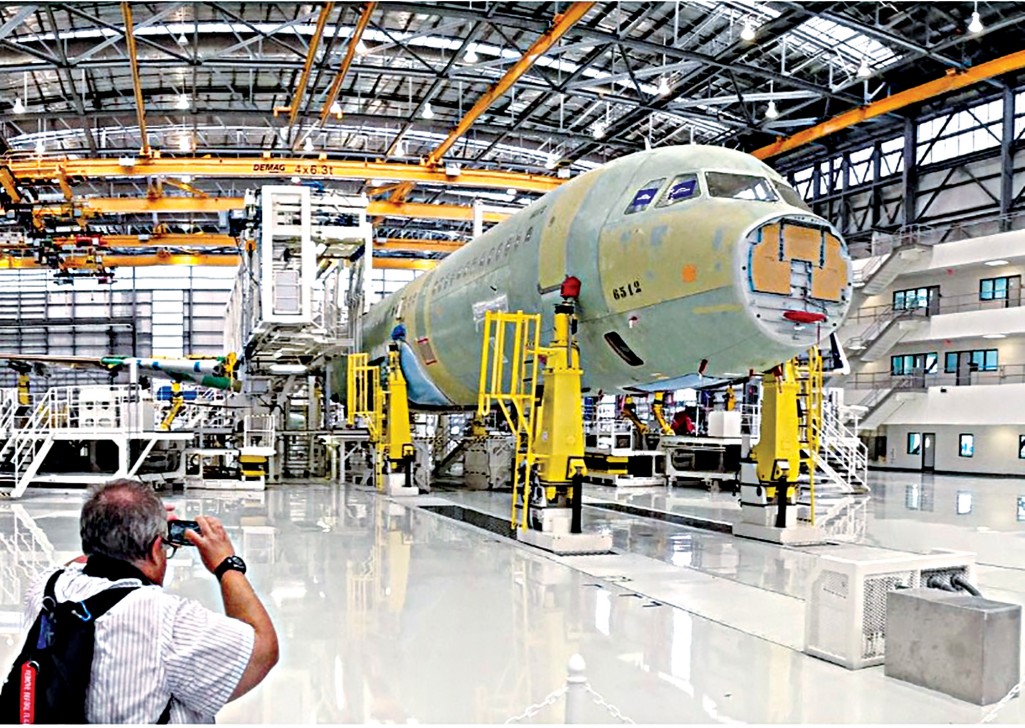US airlines grapple with ‘unfair tax’

US airlines are scrambling to digest a new 10 percent tariff on European-made Airbus planes that threaten additional havoc in a market already reeling from frozen deliveries of Boeing Co’s 737 MAX.
In a statement late on Thursday, Delta Air Lines called the proposed levy on aircraft from Europe that are already under contract for purchase “an unfair tax on US consumers and companies.”
The tariff on Airbus planes creates uncertainty for aircraft delivery terms much like the global grounding of Boeing’s 737 MAX in March after two fatal crashes and comes at a time of threats to international air travel demand in the midst of slowing global economic growth and trade disputes.
No. 2 US carrier Delta is not a 737 MAX customer but with some 266 Airbus orders is the most exposed to aircraft levies due to take effect on Oct. 18 after the World Trade Organization gave Washington the right to impose tariffs on $7.5 billion worth of EU goods annually in a long-running case.
Although the overall value of trade hit by sanctions was in line with expectations reported by Reuters, percentage tariffs were less than expected with Airbus planes initially subject to a tenth of the 100 percent rival Boeing had recommended.
Market sources said this was enough to disrupt trade in the cut-throat plane business but low enough to tempt some airlines to negotiate for Airbus to absorb some of the cost, squeezing its margins.
“10 percent is a deal breaker for airlines,” an industry source said, noting that planes liable to the tariff may have to be delayed. Planemakers are typically reluctant to absorb such costs, the source added.
Airbus declined to comment on commercial negotiations.
On a positive note aircraft parts were spared from tariffs, which means independent repair shops, some feeling pain from the grounding of the Boeing 737 MAX, will continue to function.
That will benefit Boeing and Airbus fleets equally, industry sources said.
Delta spokeswoman Lisa Hanna called on the Trump administration and EU to resolve the 15-year trade dispute “in a manner that respects existing contractual rights.” Still, it welcomed Washington’s decision to exempt aircraft production and deliveries from Airbus’ plant in Mobile, Alabama.
The exemption means that the impact for US airlines with orders for Airbus aircraft assembled in Alabama can be mitigated, Cowen analyst Helane Becker said, pointing to no-frills carrier Spirit Airlines as one carrier whose order book would mostly come from Alabama.
Shares of US airlines rebounded on Friday after two days of losses.
Airbus’ Alabama plant produces four A320-family narrowbody jets a month, and Credit Suisse analyst Jose Caiado estimated that the plant could fulfill at least half of the US backlog over the next year at a rate of five jets per month.
Most of budget-friendly carrier JetBlue Airways’ orders for narrowbody A321s and A220s would also be among those exempt, but the carrier still warned of a hit to travelers and commercial aviation.
“We are concerned about the detrimental impact aircraft tariffs will have on the ability for low-cost carriers like JetBlue to grow and compete, which will harm customers who rely on us to offer competitive, low fares,” spokesman Derek Dombrowski said.
JetBlue continues to advocate for a resolution, he said.
Delta and JetBlue, with the second-largest Airbus order among US carriers, had both lobbied for the tariffs to be applied only to new orders.
